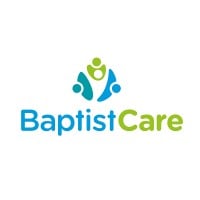
SEIU 775 Benefits Group Company Cyber Security Posture
myseiubenefits.orgSEIU 775 Benefits Group partners with workers, employers and industry stakeholders to collectively solve challenges facing the home care workforce through innovation, creativity and an evidence-based approach. Together, we deliver high-quality training, health, secure retirement and job-matching benefits and services to support a growing workforce.
S7BG Company Details
seiu-775-benefits-group
200 employees
2743.0
none
Non-profit Organizations
myseiubenefits.org
Scan still pending
SEI_2212753
In-progress
Between 200 and 800
This score is AI-generated and less favored by cyber insurers, who prefer the TPRM score.
 S7BG Global Score
S7BG Global Score.png)

SEIU 775 Benefits Group Company Scoring based on AI Models
| Model Name | Date | Description | Current Score Difference | Score |
|---|---|---|---|---|
| AVERAGE-Industry | 03-12-2025 | This score represents the average cybersecurity rating of companies already scanned within the same industry. It provides a benchmark to compare an individual company's security posture against its industry peers. | N/A | Between 200 and 800 |
SEIU 775 Benefits Group Company Cyber Security News & History
| Entity | Type | Severity | Impact | Seen | Url ID | Details | View |
|---|---|---|---|---|---|---|---|
| SEIU 775 Benefits Group | Data Leak | 50 | 1 | 05/2021 | SEI2143311222 | Link | |
Rankiteo Explanation : Attack without any consequencesDescription: SEIU 775 Benefits Group suffered from a data breach incident in May 2021 that exposed 140,000 Person information. The compromised data includes, such as name, address, and Social Security number, as well as prospective health plan eligibility or enrollment data, were among the sorts of data that may have been implicated. There was no evidence, however, that the unauthorized individual had otherwise accessed, downloaded, or exfiltrated any files. Actions were taken right away to stop additional unauthorized access and to stop the intrusion. In order to further bolster its cybersecurity defenses, SEIU 775 is closely collaborating with its consultants and outside cybersecurity specialists to examine system security. | |||||||
SEIU 775 Benefits Group Company Subsidiaries

SEIU 775 Benefits Group partners with workers, employers and industry stakeholders to collectively solve challenges facing the home care workforce through innovation, creativity and an evidence-based approach. Together, we deliver high-quality training, health, secure retirement and job-matching benefits and services to support a growing workforce.
Access Data Using Our API

Get company history
.png)
S7BG Cyber Security News
SEIU 775 Benefits Group Data Breach Impacts 140,000 Individuals
Service Employees International Union 775 (SEIU 775) Benefits Group, has experienced a cyberattack that resulted in the deletion of sensitive data.
Employers look to curb racial disparities in saving
A growing awareness of racial disparities in savings is driving employers to do more to close the gap.
Quality Workforce Partnerships
Put differently, these quality partnerships ensure all workers free job training and increase their earnings while continuing to provide them ...

S7BG Similar Companies

YMCA of the USA
YMCA of the USA is the national resource office for the nation's YMCAs. Headquartered in Chicago, IL, YMCA of the USA exists to serve YMCAs. To address the specific needs of communities, each YMCA is an independent organization, autonomous and separate from YMCA of the USA. They are required by the

BaptistCare
We are proud to be part of a newly merged national care organisation, BaptistCare, committed to providing exceptional support and services across Australia. Together, we are building on a shared history of care and compassion, expanding our reach, and strengthening our mission to help people live we

Bomberos de Chile
El objetivo de Bomberos de Chile, junto a los 314 Cuerpos, es desarrollar un servicio voluntario bomberil eficiente, que garantice la seguridad de la vida y bienes de la ciudadanÃa ante incendios, desastres naturales, accidentes vehiculares, emergencias con sustancias peligrosas y de otra Ãndole,

YUVA Unstoppable
YUVA Unstoppable is a premier volunteer movement with a force of 60,000 young people across 30 cities of India reaching to more than 100,000 kids in the municipal schools / slums in India. The vision of Yuva is to "Make Young People Kinder". Following are the three initiatives through which Yuva

UNRWA
Created by the UN General Assembly in 1949, UNRWA provides assistance and protection to some 5.5 million Palestine refugees to help them achieve their full potential in human development. UNRWA human development and humanitarian services encompass primary and vocational education, primary health c

TED Conferences
TED’s mission is to discover and champion the ideas that will shape tomorrow. Powerful ideas, powerfully presented, can move us to feel something, to think differently, to take action and create a brighter future. TED finds these powerful ideas across disciplines and around the globe, from people w

Frequently Asked Questions (FAQ) on Cybersecurity Incidents
S7BG CyberSecurity History Information
Total Incidents: According to Rankiteo, S7BG has faced 1 incidents in the past.
Incident Types: The types of cybersecurity incidents that have occurred include ['Data Leak'].
Total Financial Loss: The total financial loss from these incidents is estimated to be {total_financial_loss}.
Cybersecurity Posture: The company's overall cybersecurity posture is described as SEIU 775 Benefits Group partners with workers, employers and industry stakeholders to collectively solve challenges facing the home care workforce through innovation, creativity and an evidence-based approach. Together, we deliver high-quality training, health, secure retirement and job-matching benefits and services to support a growing workforce..
Detection and Response: The company detects and responds to cybersecurity incidents through {description_of_detection_and_response_process}.
Incident Details
Incident 1: Ransomware Attack
Title: {Incident_Title}
Description: {Brief_description_of_the_incident}
Date Detected: {Detection_Date}
Date Publicly Disclosed: {Disclosure_Date}
Date Resolved: {Resolution_Date}
Type: {Type_of_Attack}
Attack Vector: {Attack_Vector}
Vulnerability Exploited: {Vulnerability}
Threat Actor: {Threat_Actor}
Motivation: {Motivation}
Incident 2: Data Breach
Title: {Incident_Title}
Description: {Brief_description_of_the_incident}
Date Detected: {Detection_Date}
Date Publicly Disclosed: {Disclosure_Date}
Date Resolved: {Resolution_Date}
Type: {Type_of_Attack}
Attack Vector: {Attack_Vector}
Vulnerability Exploited: {Vulnerability}
Threat Actor: {Threat_Actor}
Motivation: {Motivation}
Common Attack Types: As of now, the company has not encountered any reported incidents involving common cyberattacks.
Identification of Attack Vectors: The company identifies the attack vectors used in incidents through {description_of_identification_process}.
Impact of the Incidents
Incident 1: Ransomware Attack
Financial Loss: {Financial_Loss}
Data Compromised: {Data_Compromised}
Systems Affected: {Systems_Affected}
Downtime: {Downtime}
Operational Impact: {Operational_Impact}
Conversion Rate Impact: {Conversion_Rate_Impact}
Revenue Loss: {Revenue_Loss}
Customer Complaints: {Customer_Complaints}
Brand Reputation Impact: {Brand_Reputation_Impact}
Legal Liabilities: {Legal_Liabilities}
Identity Theft Risk: {Identity_Theft_Risk}
Payment Information Risk: {Payment_Information_Risk}
Incident 2: Data Breach
Financial Loss: {Financial_Loss}
Data Compromised: {Data_Compromised}
Systems Affected: {Systems_Affected}
Downtime: {Downtime}
Operational Impact: {Operational_Impact}
Conversion Rate Impact: {Conversion_Rate_Impact}
Revenue Loss: {Revenue_Loss}
Customer Complaints: {Customer_Complaints}
Brand Reputation Impact: {Brand_Reputation_Impact}
Legal Liabilities: {Legal_Liabilities}
Identity Theft Risk: {Identity_Theft_Risk}
Payment Information Risk: {Payment_Information_Risk}
Average Financial Loss: The average financial loss per incident is {average_financial_loss}.
Commonly Compromised Data Types: The types of data most commonly compromised in incidents are {list_of_commonly_compromised_data_types}.
Incident 1: Ransomware Attack
Entity Name: {Entity_Name}
Entity Type: {Entity_Type}
Industry: {Industry}
Location: {Location}
Size: {Size}
Customers Affected: {Customers_Affected}
Incident 2: Data Breach
Entity Name: {Entity_Name}
Entity Type: {Entity_Type}
Industry: {Industry}
Location: {Location}
Size: {Size}
Customers Affected: {Customers_Affected}
Response to the Incidents
Incident 1: Ransomware Attack
Incident Response Plan Activated: {Yes/No}
Third Party Assistance: {Yes/No}
Law Enforcement Notified: {Yes/No}
Containment Measures: {Containment_Measures}
Remediation Measures: {Remediation_Measures}
Recovery Measures: {Recovery_Measures}
Communication Strategy: {Communication_Strategy}
Adaptive Behavioral WAF: {Adaptive_Behavioral_WAF}
On-Demand Scrubbing Services: {On_Demand_Scrubbing_Services}
Network Segmentation: {Network_Segmentation}
Enhanced Monitoring: {Enhanced_Monitoring}
Incident 2: Data Breach
Incident Response Plan Activated: {Yes/No}
Third Party Assistance: {Yes/No}
Law Enforcement Notified: {Yes/No}
Containment Measures: {Containment_Measures}
Remediation Measures: {Remediation_Measures}
Recovery Measures: {Recovery_Measures}
Communication Strategy: {Communication_Strategy}
Adaptive Behavioral WAF: {Adaptive_Behavioral_WAF}
On-Demand Scrubbing Services: {On_Demand_Scrubbing_Services}
Network Segmentation: {Network_Segmentation}
Enhanced Monitoring: {Enhanced_Monitoring}
Incident Response Plan: The company's incident response plan is described as {description_of_incident_response_plan}.
Third-Party Assistance: The company involves third-party assistance in incident response through {description_of_third_party_involvement}.
Data Breach Information
Incident 2: Data Breach
Type of Data Compromised: {Type_of_Data}
Number of Records Exposed: {Number_of_Records}
Sensitivity of Data: {Sensitivity_of_Data}
Data Exfiltration: {Yes/No}
Data Encryption: {Yes/No}
File Types Exposed: {File_Types}
Personally Identifiable Information: {Yes/No}
Prevention of Data Exfiltration: The company takes the following measures to prevent data exfiltration: {description_of_prevention_measures}.
Handling of PII Incidents: The company handles incidents involving personally identifiable information (PII) through {description_of_handling_process}.
Ransomware Information
Incident 1: Ransomware Attack
Ransom Demanded: {Ransom_Amount}
Ransom Paid: {Ransom_Paid}
Ransomware Strain: {Ransomware_Strain}
Data Encryption: {Yes/No}
Data Exfiltration: {Yes/No}
Ransom Payment Policy: The company's policy on paying ransoms in ransomware incidents is described as {description_of_ransom_payment_policy}.
Data Recovery from Ransomware: The company recovers data encrypted by ransomware through {description_of_data_recovery_process}.
Regulatory Compliance
Incident 1: Ransomware Attack
Regulations Violated: {Regulations_Violated}
Fines Imposed: {Fines_Imposed}
Legal Actions: {Legal_Actions}
Regulatory Notifications: {Regulatory_Notifications}
Incident 2: Data Breach
Regulations Violated: {Regulations_Violated}
Fines Imposed: {Fines_Imposed}
Legal Actions: {Legal_Actions}
Regulatory Notifications: {Regulatory_Notifications}
Regulatory Frameworks: The company complies with the following regulatory frameworks regarding cybersecurity: {list_of_regulatory_frameworks}.
Ensuring Regulatory Compliance: The company ensures compliance with regulatory requirements through {description_of_compliance_measures}.
Lessons Learned and Recommendations
Incident 1: Ransomware Attack
Lessons Learned: {Lessons_Learned}
Incident 2: Data Breach
Lessons Learned: {Lessons_Learned}
Incident 1: Ransomware Attack
Recommendations: {Recommendations}
Incident 2: Data Breach
Recommendations: {Recommendations}
Key Lessons Learned: The key lessons learned from past incidents are {list_of_key_lessons_learned}.
Implemented Recommendations: The company has implemented the following recommendations to improve cybersecurity: {list_of_implemented_recommendations}.
References
Additional Resources: Stakeholders can find additional resources on cybersecurity best practices at {list_of_additional_resources}.
Investigation Status
Incident 1: Ransomware Attack
Investigation Status: {Investigation_Status}
Incident 2: Data Breach
Investigation Status: {Investigation_Status}
Communication of Investigation Status: The company communicates the status of incident investigations to stakeholders through {description_of_communication_process}.
Stakeholder and Customer Advisories
Incident 1: Ransomware Attack
Stakeholder Advisories: {Stakeholder_Advisories}
Customer Advisories: {Customer_Advisories}
Incident 2: Data Breach
Stakeholder Advisories: {Stakeholder_Advisories}
Customer Advisories: {Customer_Advisories}
Advisories Provided: The company provides the following advisories to stakeholders and customers following an incident: {description_of_advisories_provided}.
Initial Access Broker
Incident 1: Ransomware Attack
Entry Point: {Entry_Point}
Reconnaissance Period: {Reconnaissance_Period}
Backdoors Established: {Backdoors_Established}
High Value Targets: {High_Value_Targets}
Data Sold on Dark Web: {Yes/No}
Incident 2: Data Breach
Entry Point: {Entry_Point}
Reconnaissance Period: {Reconnaissance_Period}
Backdoors Established: {Backdoors_Established}
High Value Targets: {High_Value_Targets}
Data Sold on Dark Web: {Yes/No}
Monitoring and Mitigation of Initial Access Brokers: The company monitors and mitigates the activities of initial access brokers through {description_of_monitoring_and_mitigation_measures}.
Post-Incident Analysis
Incident 1: Ransomware Attack
Root Causes: {Root_Causes}
Corrective Actions: {Corrective_Actions}
Incident 2: Data Breach
Root Causes: {Root_Causes}
Corrective Actions: {Corrective_Actions}
Post-Incident Analysis Process: The company's process for conducting post-incident analysis is described as {description_of_post_incident_analysis_process}.
Corrective Actions Taken: The company has taken the following corrective actions based on post-incident analysis: {list_of_corrective_actions_taken}.
Additional Questions
General Information
Ransom Payment History: The company has {paid/not_paid} ransoms in the past.
Last Ransom Demanded: The amount of the last ransom demanded was {last_ransom_amount}.
Last Attacking Group: The attacking group in the last incident was {last_attacking_group}.
Incident Details
Most Recent Incident Detected: The most recent incident detected was on {most_recent_incident_detected_date}.
Most Recent Incident Publicly Disclosed: The most recent incident publicly disclosed was on {most_recent_incident_publicly_disclosed_date}.
Most Recent Incident Resolved: The most recent incident resolved was on {most_recent_incident_resolved_date}.
Impact of the Incidents
Highest Financial Loss: The highest financial loss from an incident was {highest_financial_loss}.
Most Significant Data Compromised: The most significant data compromised in an incident was {most_significant_data_compromised}.
Most Significant System Affected: The most significant system affected in an incident was {most_significant_system_affected}.
Response to the Incidents
Third-Party Assistance in Most Recent Incident: The third-party assistance involved in the most recent incident was {third_party_assistance_in_most_recent_incident}.
Containment Measures in Most Recent Incident: The containment measures taken in the most recent incident were {containment_measures_in_most_recent_incident}.
Data Breach Information
Most Sensitive Data Compromised: The most sensitive data compromised in a breach was {most_sensitive_data_compromised}.
Number of Records Exposed: The number of records exposed in the most significant breach was {number_of_records_exposed}.
Ransomware Information
Highest Ransom Demanded: The highest ransom demanded in a ransomware incident was {highest_ransom_demanded}.
Highest Ransom Paid: The highest ransom paid in a ransomware incident was {highest_ransom_paid}.
Regulatory Compliance
Highest Fine Imposed: The highest fine imposed for a regulatory violation was {highest_fine_imposed}.
Most Significant Legal Action: The most significant legal action taken for a regulatory violation was {most_significant_legal_action}.
Lessons Learned and Recommendations
Most Significant Lesson Learned: The most significant lesson learned from past incidents was {most_significant_lesson_learned}.
Most Significant Recommendation Implemented: The most significant recommendation implemented to improve cybersecurity was {most_significant_recommendation_implemented}.
References
Most Recent Source: The most recent source of information about an incident is {most_recent_source}.
Most Recent URL for Additional Resources: The most recent URL for additional resources on cybersecurity best practices is {most_recent_url}.
Investigation Status
Current Status of Most Recent Investigation: The current status of the most recent investigation is {current_status_of_most_recent_investigation}.
Stakeholder and Customer Advisories
Most Recent Stakeholder Advisory: The most recent stakeholder advisory issued was {most_recent_stakeholder_advisory}.
Most Recent Customer Advisory: The most recent customer advisory issued was {most_recent_customer_advisory}.
Initial Access Broker
Most Recent Entry Point: The most recent entry point used by an initial access broker was {most_recent_entry_point}.
Most Recent Reconnaissance Period: The most recent reconnaissance period for an incident was {most_recent_reconnaissance_period}.
Post-Incident Analysis
Most Significant Root Cause: The most significant root cause identified in post-incident analysis was {most_significant_root_cause}.
Most Significant Corrective Action: The most significant corrective action taken based on post-incident analysis was {most_significant_corrective_action}.
What Do We Measure?
















Every week, Rankiteo analyzes billions of signals to give organizations a sharper, faster view of emerging risks. With deeper, more actionable intelligence at their fingertips, security teams can outpace threat actors, respond instantly to Zero-Day attacks, and dramatically shrink their risk exposure window.
These are some of the factors we use to calculate the overall score:
Identify exposed access points, detect misconfigured SSL certificates, and uncover vulnerabilities across the network infrastructure.
Gain visibility into the software components used within an organization to detect vulnerabilities, manage risk, and ensure supply chain security.
Monitor and manage all IT assets and their configurations to ensure accurate, real-time visibility across the company's technology environment.
Leverage real-time insights on active threats, malware campaigns, and emerging vulnerabilities to proactively defend against evolving cyberattacks.




